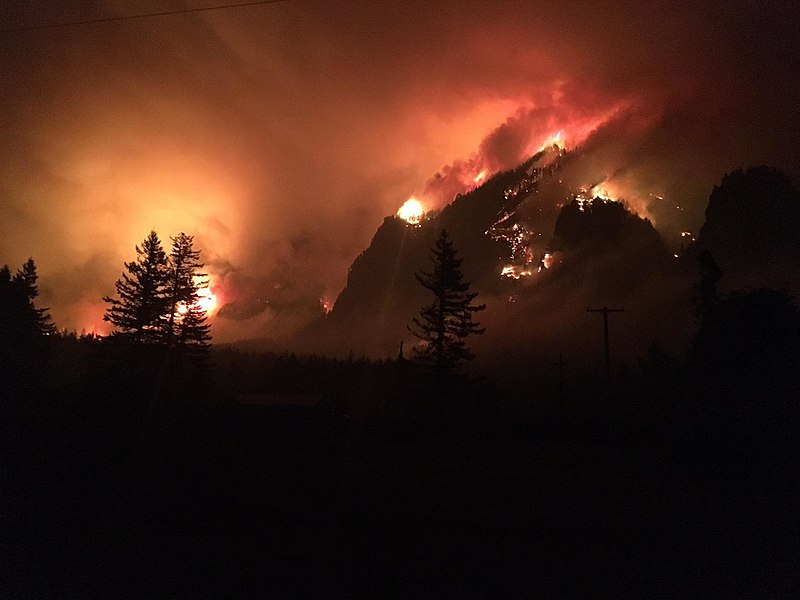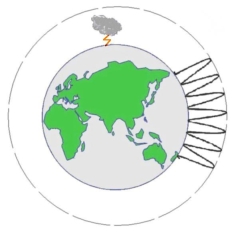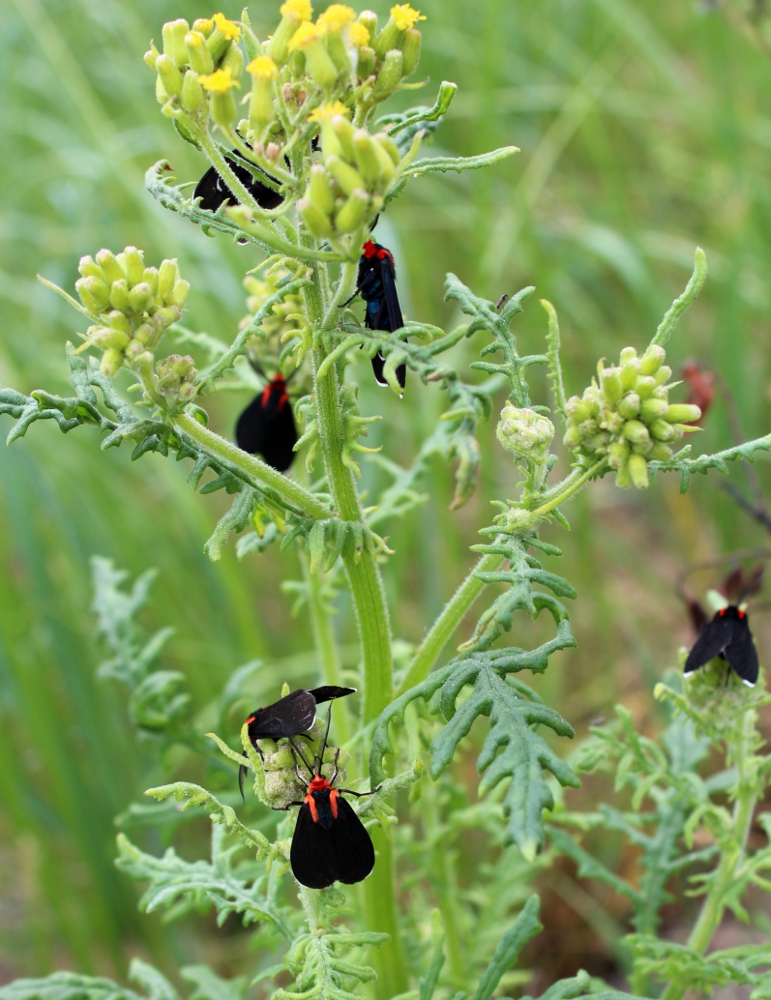Okay. I’m putting on the Cranky Pagan Hat. You have been warned.
When I was a kid, I always wanted to be some sort of STEM major, whether it was veterinarian or biologist. Unfortunately, my terrible math skills barred me from anything but the humanities. Even my psychology degree is more geared towards counseling practice than scientific research; in grad school, my research methods and statistics classes were specifically for not-math people, just enough to be able to understand the latest studies in counseling-related psychology.
But it was enough. Many of us in the United States get a cursory look at the scientific method in public school, but most of us forget it after we’re done. This is a damned shame, because it’s one of the most important processes in our world today. It is meant to allow us as close to an objective look at phenomena as we can get, in spite of our human biases. Revisiting research methods in my early thirties reminded me that there are reasons we know the things we do, and it’s not just a matter of “feelings”.
It also helped me shake off the last vestiges of “woo” in my spirituality. I’m theologically an I-don’t-care-ist; I don’t especially care whether the spirits and such exist outside of my own psyche or not. What’s important to me is that my spiritual path is both personally fulfilling, AND encourages me to give back to the world that I am a part of through service and love. When I can find wonder in the process of photosynthesis, or the delicate trail of a doe through the tall grass, or the perfect spiral of a lancetooth’s empty shell, what need have I of anything beyond that? The stars are themselves fonts of the numinous, without having to be gods on top of it.
I also don’t especially care about the details of what others believe. You’re welcome to believe whatever you like; I have friends whose theological perspectives range from monotheist to polytheist to atheist, and I think they’re all awesome. One of the things I love about the pagan community is the diversity, and I think we need to keep encouraging that.
However, what I do strongly disagree with are the utterly wrong interpretations of science within paganism (and, by extension, the New Age and the like). I’ve collected countless examples over the years; the following are just a few of the most egregious.
Pagans and others claiming that quantum physics proves magic exists
Okay, look. I know physicists have been coming up with some really cool stuff as of late; particle physics leaped into the limelight a few years ago with the Large Hadron Collider’s role in confirming the existence of the Higgs boson particle. However, even physicists don’t always know exactly what the hell they’re working with, never mind the greater implications of their research. So when quantum physics is translated into laypeople’s terms for the media and popular books, there will be a lot of details left out. We’re getting the Cliff’s Notes version at best, which is okay because for the most part we non-physicists don’t need to know the implications of the Higgs boson on our understanding of the vacuum energy density of the universe.
But we need to stop trying to cherry-pick quantum physics for things we think explain magic and other supernatural occurrences. A great example is quantum entanglement, a phenomenon in which two or more particles that are nowhere near each other still affect each other. I have seen more than one pagan try to claim that magic works because if subatomic particles can be connected at a distance, that must be the mechanism by which burning a green candle makes money come into your life.
However, there is absolutely no evidence that that’s what’s happening. Observing one particle mirroring another far away does not equal a force that makes twenty dollar bills mysteriously appear where they weren’t a moment before. People are making these HUGE assumptions about the implications of a quantum phenomenon that even the experts barely understand. And that is not how science works, nor should we be trying to justify a belief in magic thereby.
Claims that piezoelectricity explains the healing power of crystals (and energy in a broader sense)
So I ran into this post over on Tumblr claiming piezoelectricity is the energy that emanates from crystals at all times and which supposedly has qualities like healing, protection, etc. I had never heard of piezoelectricity, but it took me about two minutes of Googling to get enough information from academic-level sources that showed the original post writer had a very incorrect understanding of the phenomenon. You can read my complete teardown of the “theory” at that link, but the short version is that piezoelectricity is the transfer of energy from a physical stimulus like pressure, to an electrical charge, or vice versa, and only certain natural and synthetic materials can do this. You can squeeze a quartz crystal and the pressure will cause the crystal to release a very small bit of electricity–nowhere near enough for us to detect with our own skins, and definitely not enough to have any actual effect on our bodies. A quartz watch works in the opposite direction: the battery in the watch releases electrical charges at one-second intervals; each charge causes the quartz to vibrate, and this makes the watch tick.
Note that this is NOT the same as “this piece of rose quartz is full of love and healing energy! Carry it for good vibes!” Piezoelectricity is not an ambient force that’s there all the time, and it does not come in flavors like “amethyst” and “malachite”. It is a very specific response to a particular stimulus. Electricity leads to vibration, and vice versa, but on such a small and limited scale that it’s certainly not going to have any effect on our health and well-being–beyond knowing what time it is, anyway.
This goes for all other sorts of energy, too, ranging from the heat we put off through metabolism to the radiation exuded by everything from living beings to bricks to quartz crystals. Familiarize yourself with how these energies work–but don’t then say “That must be how crystals work!” Scientists have a pretty good idea of what’s going on with various and sundry energies, and if the minute amount of radiation put off by granite* had undeniably been found to shrink tumors as effectively as chemotherapy, cancer patients would be carrying rocks in their pockets instead of being subjected to a remedy that’s often worse than the disease.
Groups of practitioners (usually a small number) who all do the same spell or ritual and then compare “results”
Picture a coven of thirteen witches sitting in a circle in the priestess’s living room. Last time they met they decided they were each going to do the same spell, at the same time, on the same night, using leaves from the same plant, etc. Now they’re discussing their results. Each person tells their experience in turn. Some of them sound remarkably like each other, especially as more stories come out. The consensus is that the spell was a success and they’ve proven magic works with their experiment.
A few years ago I wrote a detailed post on all the various problems with the design of this experiment (if it can be called that), ranging from confirmation bias to a sample size that is laughably small. Let’s say the spell in question was a money spell, and everyone got some amount of money after they did it, whether it was expected (a birthday card with a check) or unexpected (a ten dollar bill on the ground). There’s no control group to compare the coven to–and no, “everyone else in the world” is NOT how you create a control group. No one is factoring in confounds like “this person was more likely to get money because they overpaid their phone bill three months ago and the phone company finally noticed and sent a check”. No one is comparing the rate of “finding money on the ground” between people who did a spell beforehand, and people who didn’t.
And there’s our old friend confirmation bias, in which people look for the results they want, even if not consciously. If everyone in the group secretly wants the spell to work because they want money and to prove magic works, they’re more likely to look for any possible proof, no matter how slim. And as the coven members take turns reporting their results, there may be increasing pressure on the later reporters to make sure their results match with the group’s so they aren’t the lone naysayer. If a medical trial were set up with as shoddy a structure as this “experiment”, the researchers would be out of a career.
We can say one thing about all three examples…
NONE OF THESE ARE SCIENCE
Here is how science ideally works. Let’s say we have a hypothesis, which we will call A. We test A with a rigorously designed experiment (or in some cases multiple iterations of the same experiment), with a solid control group, dependent and independent variables, accounting for confounds, etc. In those experiments we get a consistent result, which we will call B. So we can go from point A to point B through a path which can be repeated again and again by different researchers.
What too many people are doing is saying “Okay, so A leads to B–that MUST mean that B leads to C, and therefore A proves C!” C is usually something like magic or energy or the irrefutable existence of ghosts, or some other thing that scientists have tested for but not gotten conclusive evidence of, not in the same way we know antibiotics kill bacteria or plants convert sunlight into sugars. I used to work in a microbiology lab plating specimens. If I put the urine of someone with a urinary tract infection onto a petri dish and kept it at about 98.6 degrees, within a few days there would be colonies of the offending bacteria on the plate, which proves that A (I bet there’s bacteria in this pee) leads to B (yep, just look at all them little suckers in the dish.) It does not then follow that C (I am the life-giving god of these bacteria who shall build tiny bacteria churches in my honor until they overpopulate and eat up all the agar and illustrate the end result of overpopulation of a species).
Yes, that last result is hyperbolic, but it illustrates the grand leaps in logic people try to make when attempting to use science to prove spiritual matters. Which begs the next question…
Why Is This So Darn Important?
Two words: scientific literacy. American culture in particular is woefully prone to pseudoscience and science denialism already, and our clinging to bad science doesn’t help. When we replace scientific literacy with non-scientific explanations for things in this world, we are making it easier for people to spread and utilize misinformation. We also make it harder to disprove their claims and to get people to stop supporting them. We increase the societal view that scientific literacy isn’t important for anyone except scientists. And that leads to some really bad things.
It’s relatively harmless to believe that seeing a hawk is good luck. But a lack of scientific literacy can also have more dangerous outcomes for those supposedly sacred animals. Poor scientific literacy also contributes to everything from faith healing deaths to support of subjecting QUILTBAG** people to so-called conversion therapy to people with albinism being murdered because their remains supposedly have magical powers. People are voting for elected officials who make big, important decisions to include on matters ranging from climate change to medical care. The widespread lack of scientific literacy leads to both voters and politicians not fully understanding the ramifications of their choices–and often voting with their religious and/or emotional biases, not their logic and reason. This then leads to choices detrimental both to us and the world we live in.
Science isn’t perfect, and I’ll be the first to state that. After all, it’s run by humans, who are full of mistakes and biases and sleep deprivation. But if there are mistakes that deviate from the scientific process of inquiry, the answer is not to even more deliberately deviate from it with wishful thinking and “this just feels right”. Pharmaceutical companies missing an important side effect of a medication and having to take it off the market does not mean that it is somehow okay to start ingesting essential oils to medicate yourself instead just because you think essential oils are “natural and good”. Two wrongs do not make a scientific breakthrough.
Am I a meanie who hates religion? Of course not. I have a deep spiritual path that gives me a structure for personal meaning and creating a place for myself in this world. But my work with totems does not overwrite my understanding of the physical animals, plants and other beings out there in the world. If anything, it is natural history that informs my deeper connection with the spirits I work with, because I know where they’re rooted.
Whether you’re a polytheist or a humanist or a duotheist or an animist, I encourage you to (re)familiarize yourself with the scientific method and with the basics of research design and statistics. I encourage you to look at the ways in which sloppy, bad science has affected everything from the environment to human rights, historically and now in the 21st century. I encourage you to look at ways in which good science can support our spirituality–how spirituality can lead to a healthier, more positive outlook on life, for example. And I encourage you to consider being both a spiritual person, and a scientist (even if you’re a citizen scientist like me, rather than a full-time professional scientist!) In doing these things, we can set a good example by being a spiritual community with a firm grasp on the differing bailiwicks of science and spirit.
*The soil in your yard emits more radiation than your granite countertop. Neither of these have been found to either cause, or cure, tumors.
**QUILTBAG – A delightful acronym that stands for Queer, Undecided, Intersex, Lesbian, Transgender/Transsexual, Bisexual, Asexual, Gay
Did you enjoy this post? Consider picking up my latest book, Nature Spirituality From the Ground Up, a natural history-informed approach to pagan practice!
Like this:
Like Loading...
















